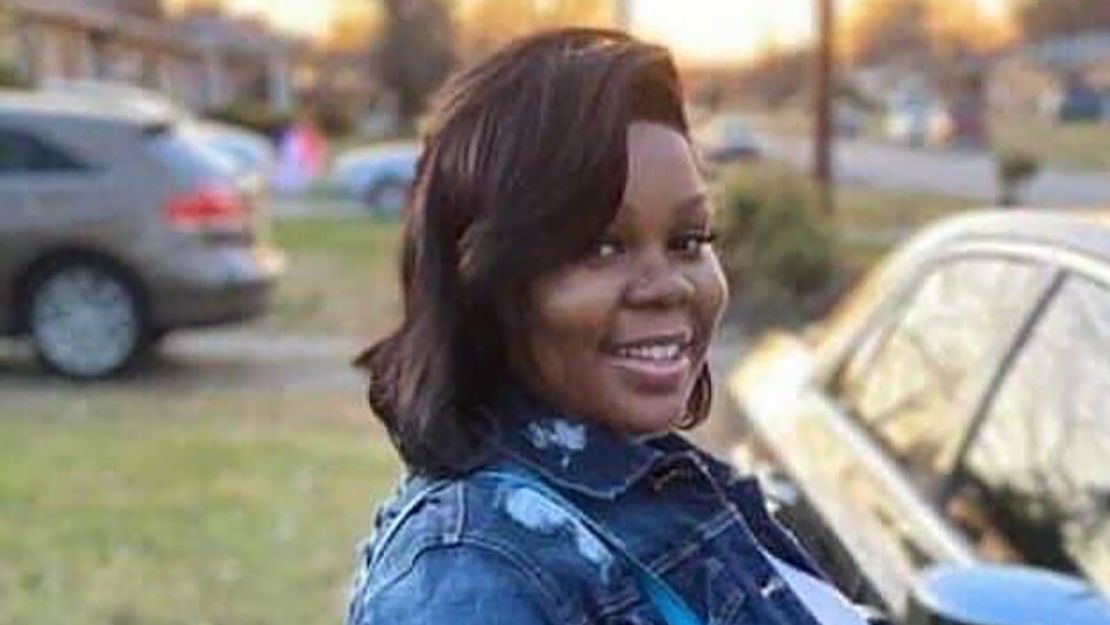The Louisville Metro Police Department received a harsh rebuke in a new study commissioned by the city in the wake of the police killing of Breonna Taylor last year.
The department is ridden with low morale and is not trusted by the Kentucky city’s communities of color, according to the 150-page report released by city officials.
The LMPD has been in the national spotlight since Taylor’s death. The 26-year-old emergency room technician was shot and killed by Louisville police officers in her apartment during a flawed forced-entry raid in the early hours of March 13, 2020.
The report made several recommendations, including more community engagement and a better department structure. It noted in particular that that many people of color don’t trust police officers “due to generations of problematic relations.”

“We have committed to reimagining public safety, and that requires an unflinching, comprehensive look at what LMPD is doing well, and what can be done better,” Louisville Mayor Greg Fischer said Thursday. “An independent audit like this is an extraordinarily valuable tool in making an organization better, and we plan to lean into the findings here – good and bad.”
Key Findings
According to the report, a key concern is the low morale in the LMPD. An internal survey conducted in the summer of 2020 showed that approximately 75% of respondents said that if they had a chance to leave and move to another agency, they would, according to Robert Davis, senior vice president of Hillard Heintze, the company hired to conduct the review.
In addition, the department is having issues recruiting and retaining new staff, Davis added.
The report noted that although the LMPD has incorporated de-escalation training, which has led to a reduction in use-of-force incidents as well as fewer injuries to residents and officers, there are still significant disparities in arrest numbers and inconsistencies in training and leadership.
“These are areas that demand our attention. It can be difficult to face up to our failings, but that’s exactly what we have to do, if we want to improve and move forward,” Fischer said.
Many reform measures have already being taken, the mayor said. They include Breonna’s Law, which bans no-knock warrants and mandates the use of body cameras for officers serving search warrants. It also encourages officers to volunteer in the neighborhoods they serve.
The mayor added that community involvement, transparency and accountability are key to resolving the issues.
Louisville’s new police chief, Erika Shields, said the report clearly shows what needs to be addressed and said she will provide regular updates of what is being accomplished.
Shields is the former Atlanta police chief who stepped down June 13, 2020 after an officer shot and killed a Black man, Rayshard Brooks, following a struggle at a Wendy’s parking lot.
“This report is the roadmap for us to move our department forward… We need to improve, and we have a lot of work ahead of us,” Shields said.

The Breonna Taylor raid
Taylor’s death, along with that of other Black people at the hands of law enforcement, sparked a summer of protests calling for police reform.
Earlier this month, the LMPD fired two detectives, Detective Myles Cosgrove and Detective Joshua Jaynes, connected with Taylor’s shooting, according to copies of the officers’ termination letters. No officer who took part in the raid was charged in Taylor’s killing. Only one of the three officers – Brett Hankison – was charged in connection with the shooting. He was fired last June and pleaded not guilty to the charges in late September.
“As I’ve said before: We face a choice today, and it’s not about Black vs. White, or demonstrators vs. police. It’s about the past vs. the future. One we can’t change, and one we will - by working together. America’s eyes have been on Louisville for months now. So, let’s show the nation what we can do. Let’s come together and be that American city that takes itself from tragedy to transformation. Together,” Fischer said.



